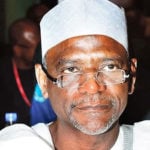
WHAT informed the establishment of the Professional Teachers Development Institute by the Niger State Government and why a boarding school?
The establishment of this institute is a dream of his Excellency, Governor Alhaji Abubakar Sani Bello to revitalise education in the state. When the standard of education was nose-diving and students’ performances became terrible, particularly children at the primary school level, the state government swung into action to salvage the situation. One of the ways to do this was to set up a school, where teachers would be trained. Basically, the school is made up of two components; one of it is the girls’ and boys’ school made up of beneficiaries from all 274 wards in Niger State.Although, we were supposed to have three centres commencing at the same time, but we couldn’t due to financial constraints. Next year, by the grace of God, other centres would also take-off and the large population we are having now would be reduced.
Why are the students starting from SSS1 and not JSS1, as it is being observed?
Students who would be attending the three centres are admitted from SSS1 because they have all completed their Junior Secondary School education. At the completion of their SSSIII, like other students, they would sit for the West African Senior School Council Examinations (WASSCE), Senior School Certificate Examinations (SSCE) being conducted by the National Examinations Council (NECO), as well as NABTEB examinations where applicable. We are grooming people who are going fully into the teaching profession; therefore, we have additional subjects that would prepare them accordingly to further study Education in universities or Colleges of Education. We picked each student directly from their respective wards, so that at the end of their training they will go back to influence their wards.
What are the incentives to draw students into the teaching profession?
The incentive is that everything here is given free of charge, ranging from uniforms, beddings, food, tooth pastes, buckets, among other necessary materials. More so, the state government gives full sponsorship to anyone who wants to study education in the higher institution. Having done all these, tell me if people would not be attracted to study in the institute. As it is now, this is the last resort for anyone who wants to go into teaching profession in the future. These days nobody wants to go to the village to teach; everybody wants to stay in the city. However, as it is now, things would be different with teachers coming from each ward in the state. As soon as they graduate they go back and serve in schools in your wards. The Teachers Registration Council of Nigerian (TRCN) in Abuja is so much aware of what we are doing here. After the trainings, there will be a follow-up on the graduates at their various local government schools, in order to see how they have been faring.
What were the conditions for recruiting teachers in the institute?
We conducted tests and had interactive sessions with teachers who were interested in working here. In fact, they are still undergoing some kind of trainings. Things are going to be different this time around; it is not going to be business as usual. The teachers would be graded by the quality of the students they produce at their different stages. The results in relation to students’ performances are going to be measured on individual basis. If your students are not doing well, then we know you don’t belong in the institute.
To ensure this is implemented, we are working towards a situation whereby you would teach a child, set an examination for him or her and someone else would mark the answer script for you. So, there is not going to be any favouritism. And these are some of the things we have in place to ensure that this school turns out the best in relation to improving the quality of teachers in the state. All the 25 Local Governments in the state are represented here. The Local Governments Education Secretaries are here. We are not accepting any child on individual basis; we do through the collective efforts of the secretaries. So, these students are basically the responsibilities of the state government, the traditional institutions and other leaders when the need arises.
Can we know how much has been expended on the institute so far by the state government in conjunction with your committee?
Buildings in the institute were started by the Federal Government through the Universal Basic Education Commission in conjunction with the previous administration between 2012 and 2013, while the incumbent administration of Alhaji Abubakar Sani Bello approved the sum of N1.5 billion for the take-off of the school proper.
How do you intend to sustain this programme even after the tenure of Governor Abubakar Sani Bello in office?
To sustain the programme, when the governor might have left the office, each local government may be asked to contribute towards the sustainability of it because the students are actually theirs.





